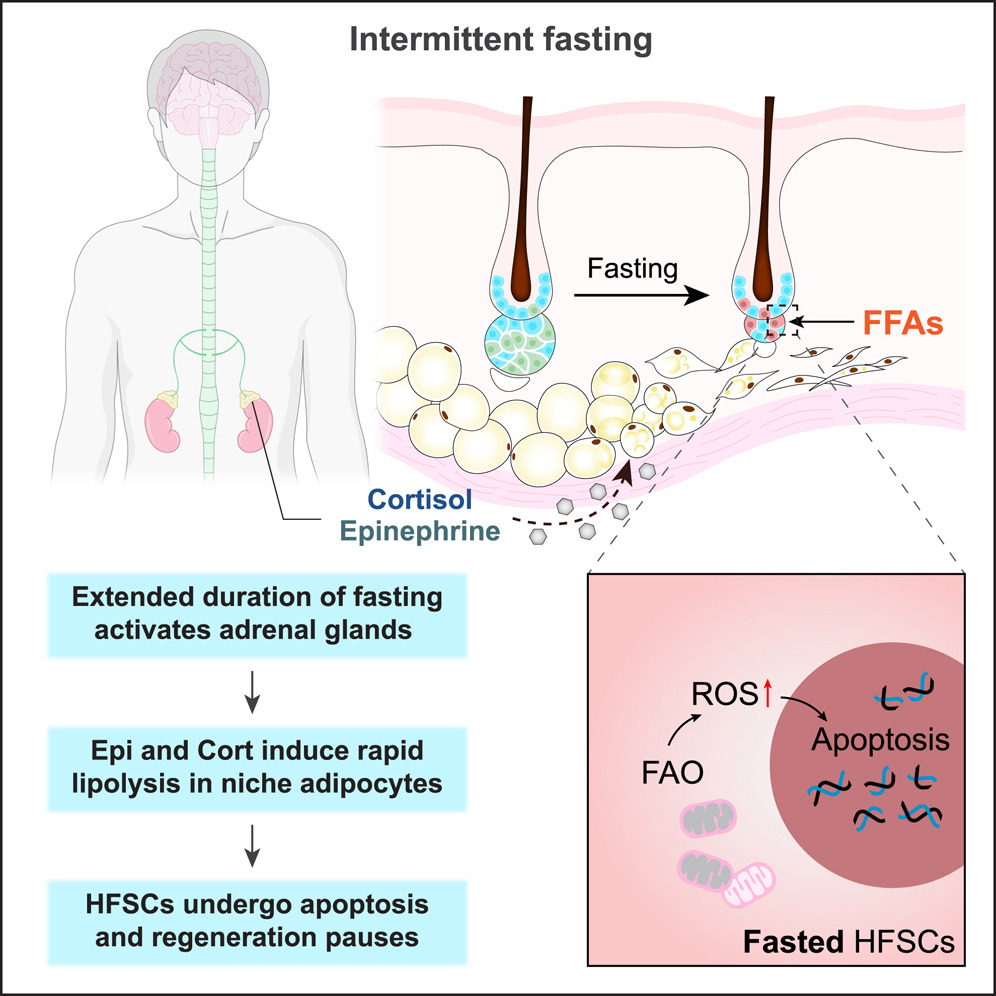You've probably heard that intermittent fasting has a number of health benefits, such as improving your metabolism. But have you ever thought that it might also slow down your hair growth? Recently, a team of researchers found that in mice, intermittent fasting did indeed boost metabolic health, but it also slowed down hair regrowth significantly.
The findings were published online on December 13, 2024 in the journal Cell under the title “Intermittent fasting triggers interorgan communication to suppress hair follicle regeneration”.

Researchers conducted a small clinical trial with mice. They looked at the effects of fasting on hair growth in two ways - time-restricted feeding (TRF) and alternate-day feeding (ADF). The results showed that the mice that were able to enjoy food whenever they wanted recovered almost all of their hair within 30 days of shaving, while the mice that were subjected to intermittent fasting had only partially recovered their hair even after 96 days.
The reason behind this? It turns out that hair follicle stem cells (HFSC) experience oxidative stress when the body switches from using glucose to burning fat, and while HFSC act as “commanders” of hair growth, promoting new hair production during active periods, during fasting, these stem cells are susceptible to programmed cellular stress. During fasting, however, these stem cells are prone to undergo programmed cell death (apoptosis). This is because fasting leads to an increase in the concentration of free fatty acids in the body, which in turn leads to the accumulation of harmful free radical oxygen inside the HFSC. In contrast, epidermal stem cells, which are responsible for maintaining the skin barrier, were unaffected because they have a greater capacity to fight oxidation.
To verify this mechanism, the researchers conducted further experiments. They found that topical application of vitamin E or upregulation of antioxidant genes could help HFSC survive after fasting. This is like putting a layer of “protective clothing” on HFSC to protect them from harm.

But don't worry, these findings don't mean you should give up intermittent fasting. The head of the research team said, “We don't want to scare people. Intermittent fasting has many benefits, you just need to be aware that it can have some unintended effects.” In fact, for humans, this effect may not be as severe due to our slower metabolic rates and different hair growth patterns.
To confirm this, the researchers also conducted a small clinical trial involving 49 healthy young adults. The participants fasted for 18 hours a day and the results showed that their average rate of hair growth was reduced by 18%. However, given the small sample size and duration of only 10 days in this trial, a larger study is needed to validate this effect.
In the future, the team plans to work with local hospitals to explore how fasting affects other types of stem cells, as well as the process of skin wound healing. They also want to find out which metabolites contribute to HFSC survival and promote hair growth during fasting. Overall, this study not only reveals new effects of intermittent fasting on hair growth, but also provides new ways to think about personalized health management in the future.
Reference:Intermittent fasting triggers interorgan communication to suppress hair follicle regeneration: Cell






Post comments